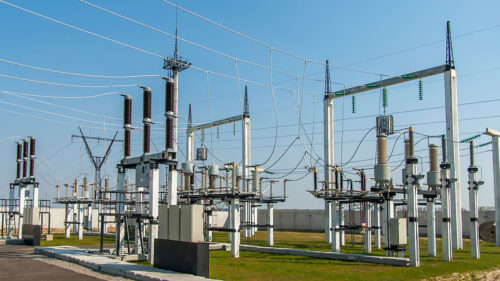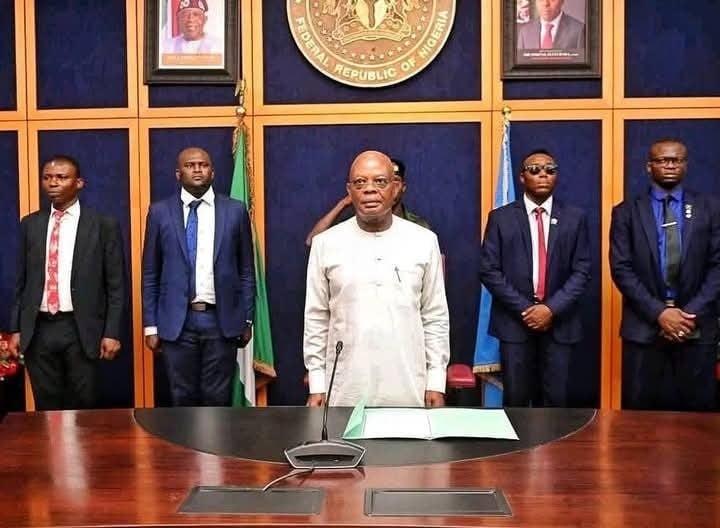Power Generation Companies (GenCos) warned on Monday of an imminent shutdown due to an N4 trillion debt owed by the Nigerian government for electricity generated and supplied to the national grid.
A statement on Monday, signed by Sani Bello, Chairman of the Board of Trustees of the Association of Power Generation Companies, said the debt, which includes N2 trillion for 2024 and N1.9 trillion in legacy debts, is threatening the continued operation of their power generation plants.
In February, the Minister of Power, Adebayo Adelabu, said the Nigerian government owes electricity generation companies (GenCos) and distribution companies (DisCos) in the country over N4 trillion in debt.
Mr Adelabu added that the debt burden is crippling the sector, making it challenging for GenCos to perform optimally.
GenCos said against the backdrop of the many challenges facing the power sector in Nigeria, the crises from cash liquidity are on the top burner and have reduced its ability to continue to perform their obligations, thereby threatening to completely undermine the Electricity value chain.
The firms added that their expectations of being settled through external support such as the World Bank PSRO have also been dampened due to other market participants’ inability to meet their respective distribution-linked indicators (DLIs) enshrined in the Power Sector Recovery Program (PSRP).
Mr Bello said access to forex is another problem, adding that given that major operation and maintenance needs in the generation sub-sector are dollarised, the importance of a specialised window or stable dollar allocation option for the GenCos cannot be overemphasised.
“GenCos is of the position that there is a need for a coordinated approach by all stakeholders in the Nigerian Electric Supply Industry (NESI) to address the liquidity issue realistically and sustainably in the power sector so that Nigerians can have access to reliable electricity supply.”
In light of the severity of the issues highlighted, he said the GenCos are requesting that immediate and expedited action is taken to prevent national security challenges that may result from the failure of the GenCos to sustain steady generation of electricity for Nigerians.
“The 2024 collection rate has dropped below 30 per cent, and 2025 is not any better, severely affecting GenCos’ ability to meet financial obligations. High corporate income tax, concession fees, royalty charges, and new FRC compliance obligations are further straining GenCos’ revenue.
“GenCos are currently owed about N4 trillion (N2 trillion for 2024 and N1.9 trillion in legacy debts). No possible solutions, including cash payments, financial instruments, and debt swaps are in sight,” Mr Bello said.
He said the 2025 government budget allocates only N900 billion, raising concerns about its adequacy to cover arrears and future payments.
“The power generated by GenCos have continued to be consumed in full without corresponding full payment, notwithstanding the commencement of the partial activation of contracts in the NESI which took effect from July 1, 2022, the minimum remittance order, bilateral market declaration, waterfall arrangement, the risks of inflation, forex volatility with no dedicated window to cushion the effect of the forex impact, the supplementary MYTO order which leaves about 90 per cent of GenCos monthly invoices unmet without a bankable securitisation, or financing plan.
“This situation has dire consequences for the GenCos and by extension the entire power value chain,” he said.
He explained that GenCos liquidity challenges are further worsened by the various policies introduced such as the payment waterfall in the NESI, which deprioritises payment to GenCos as service providers.
As a result of this, he said no one is under pressure to ensure GenCos invoices are fully settled.
“The implication of this is that GenCos only get paid a portion of their invoices (9 per cent, 11 per cent) from whatever amount is left.
“This is an aberration as it is a clear departure from existing terms of the Power Purchase Agreement (PPA) guiding the contractual relationship between GenCos and the Nigeria Bulk Electricity Trading Plc (NBET), by which NBET as buyer has contracted to purchase the available capacity as agreed under the PPA.”
He added that GenCos should be accorded the utmost priority when it comes to payment to enable them to have the capacity to continue to produce the electricity which is the product around which the entire power value chain is built.
“On the foregoing, we hereby demand the following to urgently put GenCos in a position to continue generating power for transmission and distribution to Nigerians: Immediate implementation of payment plans to settle all outstanding GenCos invoices. Reprioritisation of payments under the waterfall arrangement to give full priority to a hundred percent payment of GenCos’ invoices as at when due.
“A clear financing plan to backstop the exposures in the NERC’s Supplementary Order to the MYTO and the DRO 2024. Provision of payment security (guarantees) backed by World Bank/AFDB to guarantee full payment to GenCos, to enable them to meet their critical needs, improve generation to Nigeria and implement their respective growth and expansion plans,” he said.
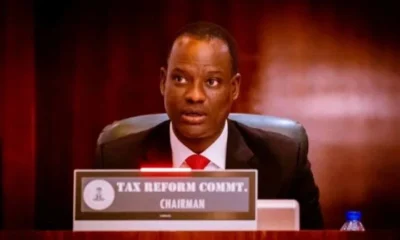
 BIG STORY4 days ago
BIG STORY4 days ago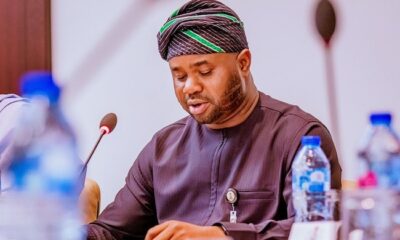
 BIG STORY5 days ago
BIG STORY5 days ago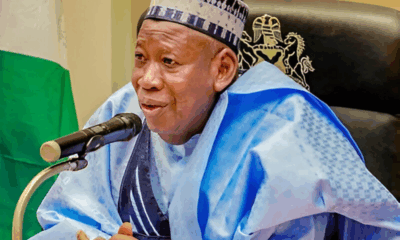
 BIG STORY4 days ago
BIG STORY4 days ago
 BIG STORY4 days ago
BIG STORY4 days ago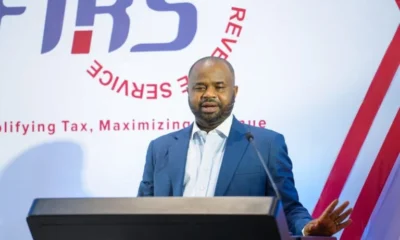
 BIG STORY4 days ago
BIG STORY4 days ago
 BIG STORY4 days ago
BIG STORY4 days ago
 BIG STORY1 day ago
BIG STORY1 day ago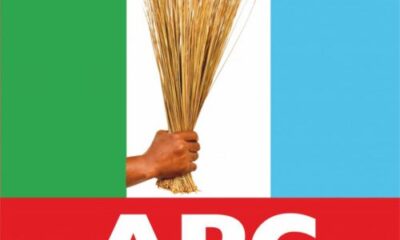
 BIG STORY1 day ago
BIG STORY1 day ago




